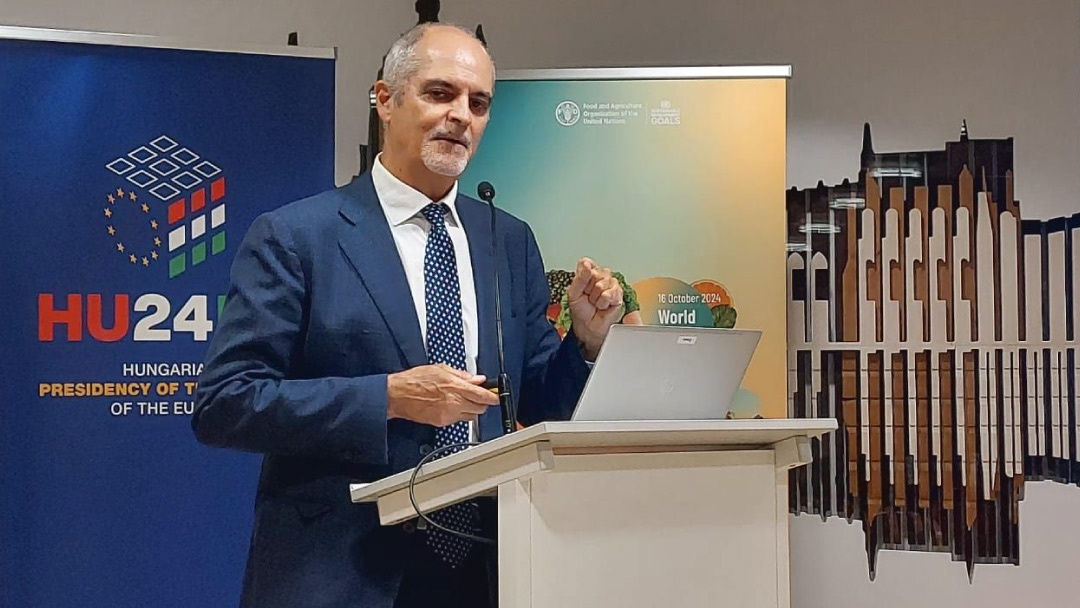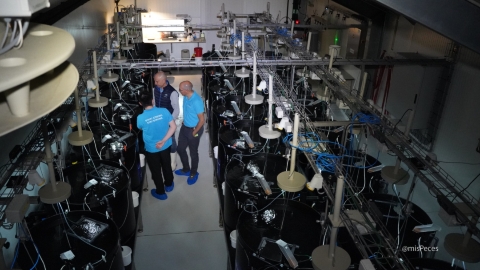 Javier Ojeda during the conference | FEAP
Javier Ojeda during the conference | FEAP
The European Federation of Aquaculture Producers (FEAP) has issued a call to the European Commission to reorient its aquaculture policies, promoting a more intensive and sustainable approach, in line with FAO’s recommendations.
This call was made during the event “Navigating the Future of Aquaculture in the European Union” held this week in Brussels, under the Hungarian Presidency of the Council of the European Union.
During the meeting, Javier Ojeda, General Secretary of FEAP and also Managing Director of the Spanish Aquaculture Producers Association (APROMAR), highlighted the “key differences between the European Commission’s aquaculture policies and, among others relevants organizations, those of the FAO.
As FEAP suggests, if the goal is to increase fish production in the European Union, reduce dependence on imports and ensure food self-sufficiency, why focus only on the extensive production of low-trophic-level species as promoted by the European Commission?
In response, FEAP believes that a more intensive and sustainable approach to aquaculture, similar to that promoted by the FAO, should be adopted to increase food production more efficiently.
Moreover, FEAP stresses that there must be an “immediate” rethink of current approaches and a greater emphasis on the farming of fish fed with high-quality feed, moving away from concerns about the trophic levels of the species themselves, and focusing on the trophic origins of the raw materials that make up the feed.
The priority of the European Union, according to FEAP, should be to increase the current rate of food self-sufficiency, which currently covers just 35%.
They also propose balancing aquaculture innovation, local production, and environmental sustainability to create jobs, drive economic development, and ensure a stable supply of food.
In short, there needs to be a shift in focus towards promoting a more intensive, sustainable, and innovative form of aquaculture to secure food safety in Europe.
It is worth noting that FEAP is an organisation representing 24 national aquaculture associations in 23 countries, producing more than 2.5 million tonnes of fish annually. Through its continued efforts, the federation seeks to ensure that European aquaculture remains a source of safe, nutritious, and sustainably produced food, thereby contributing to global food security.


